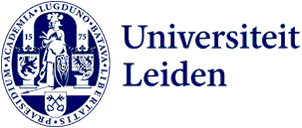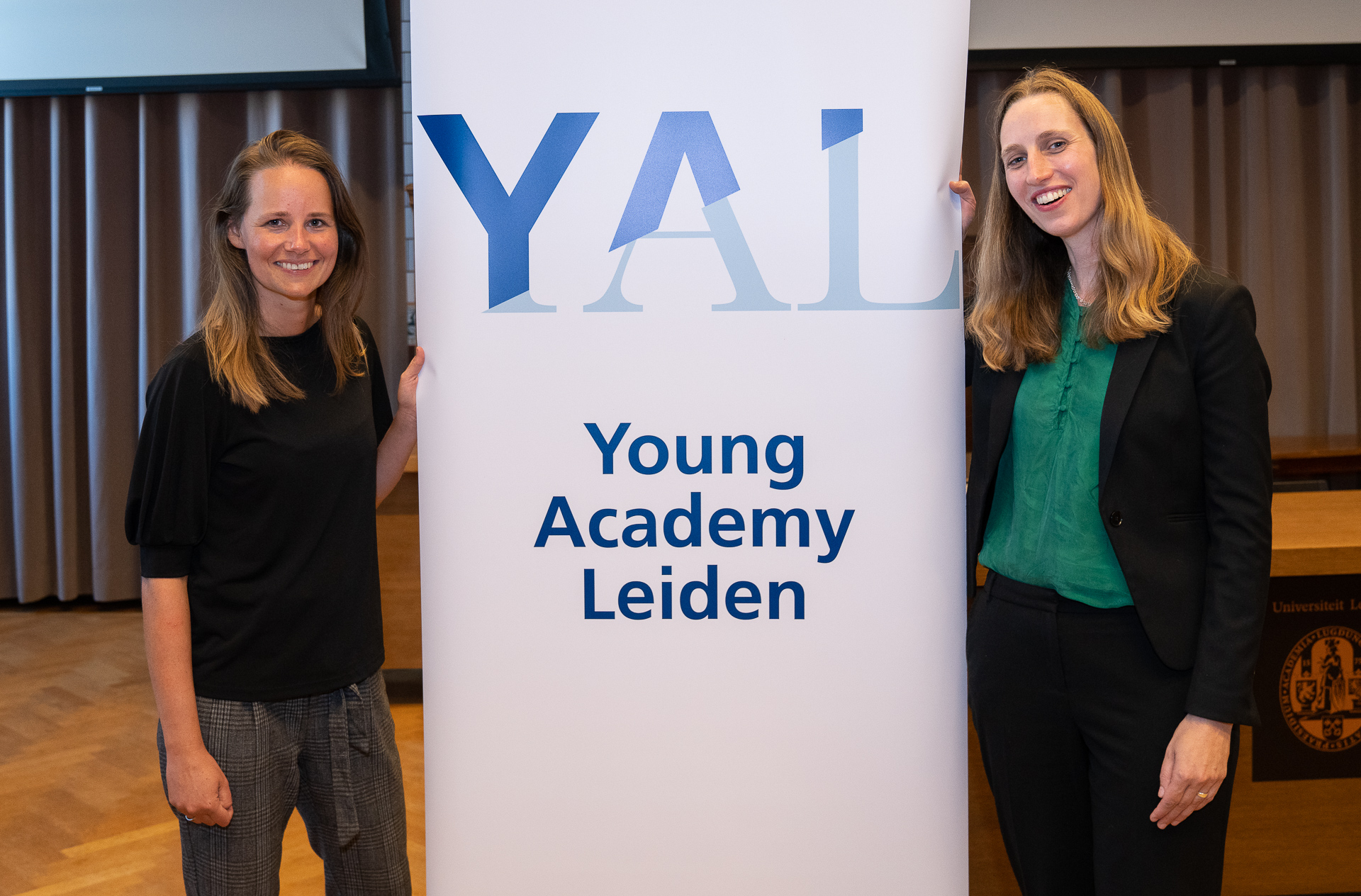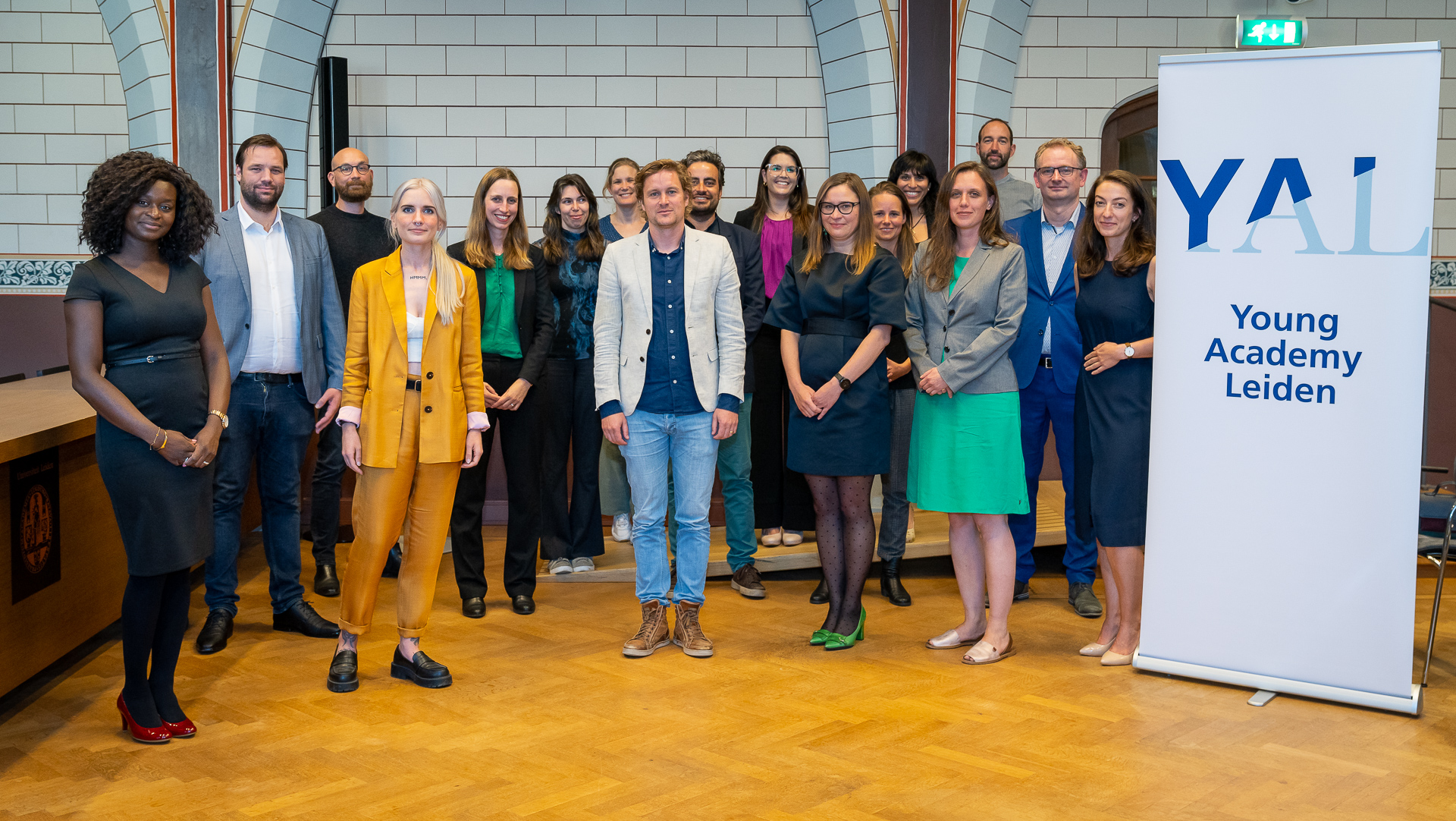
‘All the members of the Young Academy Leiden have a strong sense of responsibility'
The Young Academy Leiden (YAL) acquired six new members on 1 September. We talked to the new and former chair of this platform for young academics about what they have achieved over the recent period and what is on the agenda for the coming year.
Good afternoon, Annemarie; you are the new chair of YAL. Why did you want to take on this role?
Annemarie Samuels: ‘I became a member of YAL when it was first founded in 2019, and I've really enjoyed being part of it. In that time I've learned a lot from other academics from all kinds of disciplines. Helen Pluut and Tom Louwerse have been super enthusiastic chairs over the past couple of years, and it's at least in part due to them that YAL has grown and developed a clear focus. At some point in time, I thought, yes I want to do that too. So, this year I am chair and Sarah Giest is our vice-chair.’
Six new YAL members
On Monday 20 September, six new members of YAL were inaugurated. This year, the new members are: Zsuzsa Bakk, Martin Berger, Julia Henrich, Max van Lent, Rachel Plak and Michiel Veldhuis. The members who joined a year ago were also congratulated. There was no opportunity at that time to celebrate their inauguration because of the corona measures. View all the YAL members on the website.
And Helen, you have now passed the role of chair on to Annemarie. How would you describe the state of YAL today?
Helen Pluut: ‘Since YAL was founded, we have managed to get a foot in the door with the Executive Board and the Faculty Councils. We regularly write policy papers on issues that concern young academics, which makes us a valuable partner in discussions. In a short time, YAL has become more professional and more visible. Let me give you an example: we play an active part in thinking about how we can redefine "academic excellence". At the moment, the focus is mainly on hard research output (such as articles, prizes and subsidies, Ed.), but we believe it should be seen in a much wider context; for example, by focusing more on team achievements rather than individual successes.'
Being able to influence policy is a clear aim of YAL. So why didn't you start a political party? You might have had a place in the University Council by now if you'd taken that route.
Samuels: ‘It's because influencing policy isn't our only aim. As a network organisation, we want to promote interdisciplinary cooperation at the University. Earlier this year we organised a Big Data Policy Hackathon, where academics from all the different disciplines worked together on a societal problem. We also organised all kinds of social activities, such as online lunches in corona times.’
Pluut: ‘Not only that, we don't see ourselves as an activist club. We do want to let the voice of young academics be heard, but at the same time, we also think it's especially important to build a bridge between management and the work floor.'
What are the challenges for the coming time?
Samuels: ‘We see that a lot of young academics are concerned about how the corona period will impact their careers. With online education and working from home, many of them have suffered delays with their research and there are fewer opportunities to publish. Early in your career, that can make the difference between having a permanent position or not. We are asking the University to take this into account in the annual Performance and Development Interviews. We also intend to work further on promoting interdisciplinary research within and outside the University. We are planning a symposium on 8 November to discuss this issue with funding organisations such as the ERC and NWO.’
Six new young academics have become members of YAL this September. How would you describe a typical YAL member?
Pluut: ‘The typical YAL member is very outward looking. All our members have a strong sense of responsibility: they aren't part of YAL just for themselves; their main aim is to promote the interests of other young academics.'
Is there anything you'd like to add?
Samuels: ‘We are very happy with our new members. It's this new blood that makes me even more enthusiastic about the coming year.'
Pluut: ‘And I'm very happy that Annemarie and Sarah are taking over. They will bring a breath of fresh air to our growing platform, and I'm looking forward to experiencing that as an ordinary member of YAL.'
Samuels: ‘And we want to thank you, Helen. You saw YAL through a difficult corona year, and you did that brilliantly. I've learned a lot over the past year.'
Text: Merijn van Nuland
Photos: Monique Shaw



